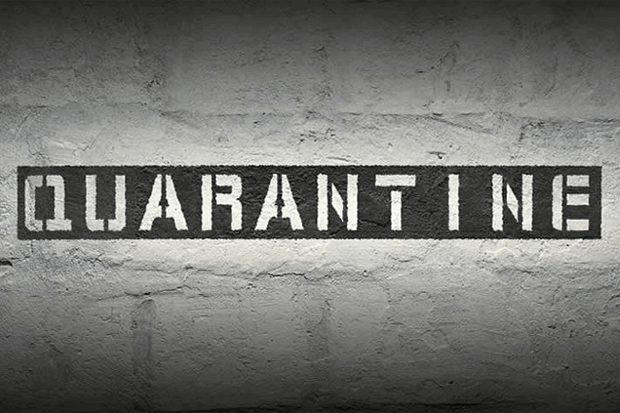Renting vs. Buying in Puerto Rico: What’s the Best Choice for You?
- Posted: April 17, 2025
- Posted by: Ishan Solutionz
- Last Reviewed: April 17, 2025

Rent or buy? Puerto Rico’s sunny lifestyle and tax perks make both options tempting. This guide breaks down everything you need to know to make the right move for your future.
Puerto Rico offers a mix of sunny weather, enticing tax benefits, and a lively culture, all while providing a lower cost of living in many areas. If you’re considering making the move, one major decision awaits—should you rent or buy? This guide will explore the advantages and drawbacks of each option, covering financial factors, the steps involved in both renting and buying, and considerations unique to Puerto Rico.
Renting in Puerto Rico

Renting offers a flexible way to experience life in Puerto Rico. Here’s a breakdown of the pros and cons.
Advantages of Renting
- Flexibility: Renting makes it easy to relocate frequently between cities.
- Lower Upfront Costs: Without the need for a down payment or property taxes, initial expenses are significantly lower.
- Short-term Rentals: Many newcomers start with Airbnb or six-month leases to get a feel for the island before settling down.
Disadvantages of Renting
- Limited Availability: There may be high demand in areas like San Juan and Rincon, which can lead to competitive pricing.
- Fluctuating Prices: Seasonal pricing spikes in tourist-heavy areas.
- Lease Terms: Rental agreements may differ from mainland norms, sometimes requiring additional security deposits.
What to Expect in the Renting Process
Renting in Puerto Rico follows a familiar structure, with lease terms typically ranging from 6 to 12 months, similar to the U.S. Shorter-term options are also available, making it easier to explore different neighborhoods or cities before committing long-term.
When signing a lease, expect to pay the first month’s rent and a security deposit, though additional fees may vary based on the lease agreement. It’s also important to consider utility costs—electricity rates tend to be higher than on the mainland, but the overall cost of living in many areas may still be more affordable.
Buying in Puerto Rico

Finding your long-term home in Puerto Rico can be an exciting journey. Here are some key advantages and challenges of buying a property.
Pros of Buying
- Potential for Appreciation: Puerto Rico’s attractive tax incentives continue to draw interest from investors, increasing property demand.
- Stable Monthly Costs: A fixed mortgage payment prevents the risk of rising rental prices over time.
- Freedom to Customize: Owning a home allows for renovations and modifications without restrictions.
Cons of Buying
- High Upfront Expenses: Expect to pay 10–20% as a down payment, along with closing costs, property taxes, and insurance.
- Mandatory Hurricane Insurance: Required in many areas, adding to the overall cost of ownership.
- Maintenance Responsibility: Repairs and upkeep fall entirely on the homeowner rather than a landlord.
What to Expect in the Buying Process
Some homes are listed online, but many are shared through industry connections, so having a knowledgeable local agent can provide access to more options. The mortgage process is also different from the mainland—U.S. banks typically do not offer loans for Puerto Rican properties, so buyers need to secure financing through Puerto Rico-based lenders.
On top of the purchase price, buyers should budget for closing costs, which generally range from 1.15% to 2.5% of the home’s value. These fees cover notary services, stamp taxes, and registration costs. Despite these additional costs, many buyers find that Puerto Rico’s tax incentives and property appreciation potential make real estate a worthwhile investment.
Key Factors to Consider Before Deciding

Before making a decision, consider several key factors. If you’re planning a permanent move, buying a home provides stability, whereas renting offers flexibility if you’re still exploring your options. A short-term rental can be a great way to test different locations before committing to a purchase. Additionally, homeownership can support your bona fide residency status for Act 60 benefits, making it an important consideration for those seeking tax incentives.
Your lifestyle preferences also play a role. Renting in busy city areas allows you to experience different neighborhoods before deciding where to settle, while buying may be a better fit in quieter, less tourist-heavy locations. Future investment potential is another factor to weigh. If you’re looking to flip properties or generate rental income, purchasing can be a valuable investment. However, if you’re uncertain about Puerto Rico as a long-term home, renting provides more flexibility without the commitment of ownership.
Final Thoughts
Renting offers lower upfront costs and the freedom to move frequently, while buying provides the potential for appreciation and long-term stability. If you’re relocating, it’s important to weigh the financial, lifestyle, and investment factors before making a decision.
And if you’re moving to Puerto Rico under Act 60, our team can simplify the paperwork so you can focus on finding the perfect home. Contact us today for expert guidance.
More Articles
-
PUERTO RICO TAX INCENTIVES FEE INCREASES

Read MoreOctober 20, 2020 -
PR Condo Associations Going Overboard with Quarantine Measures

Read MoreJune 29, 2020



